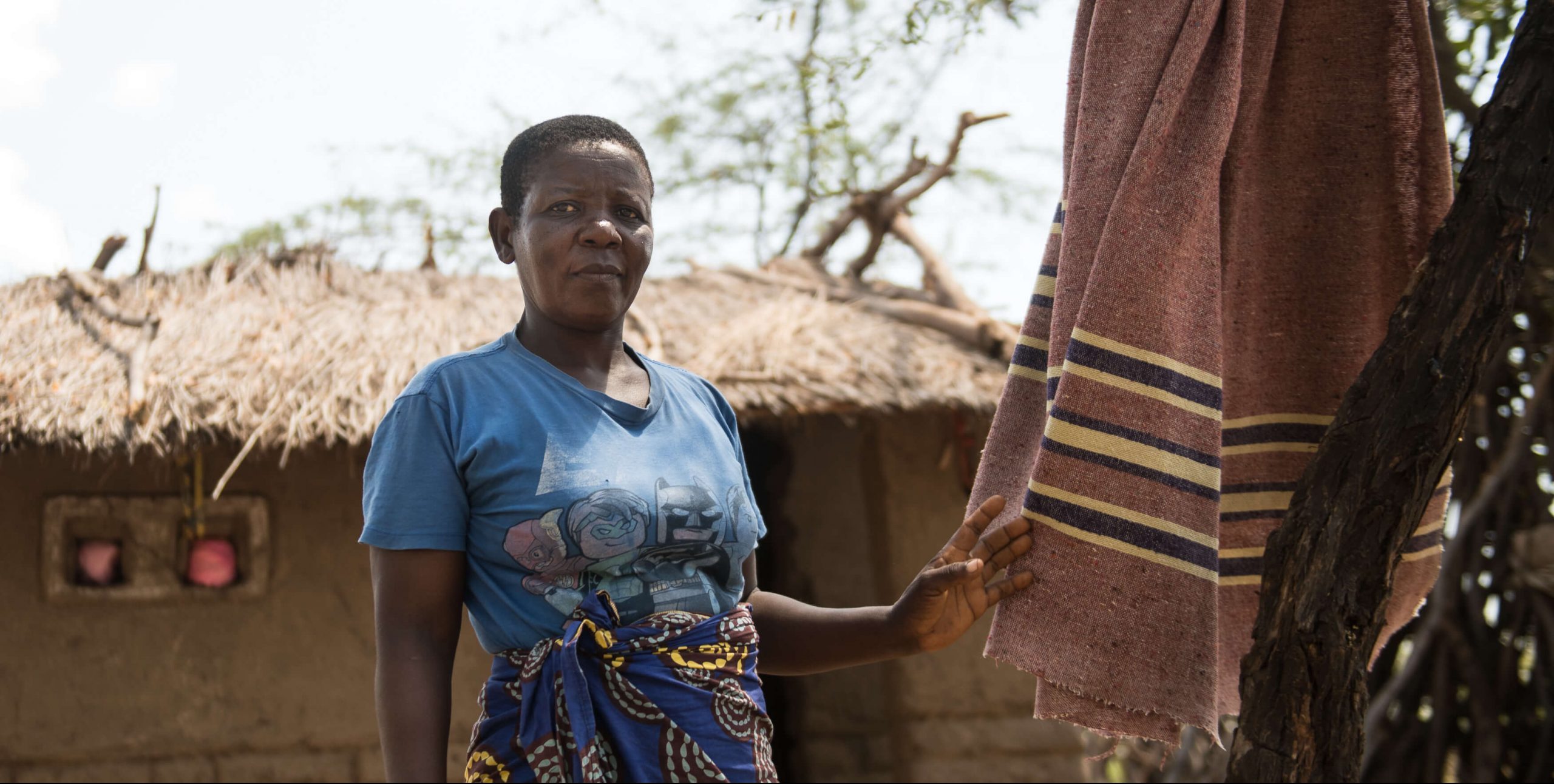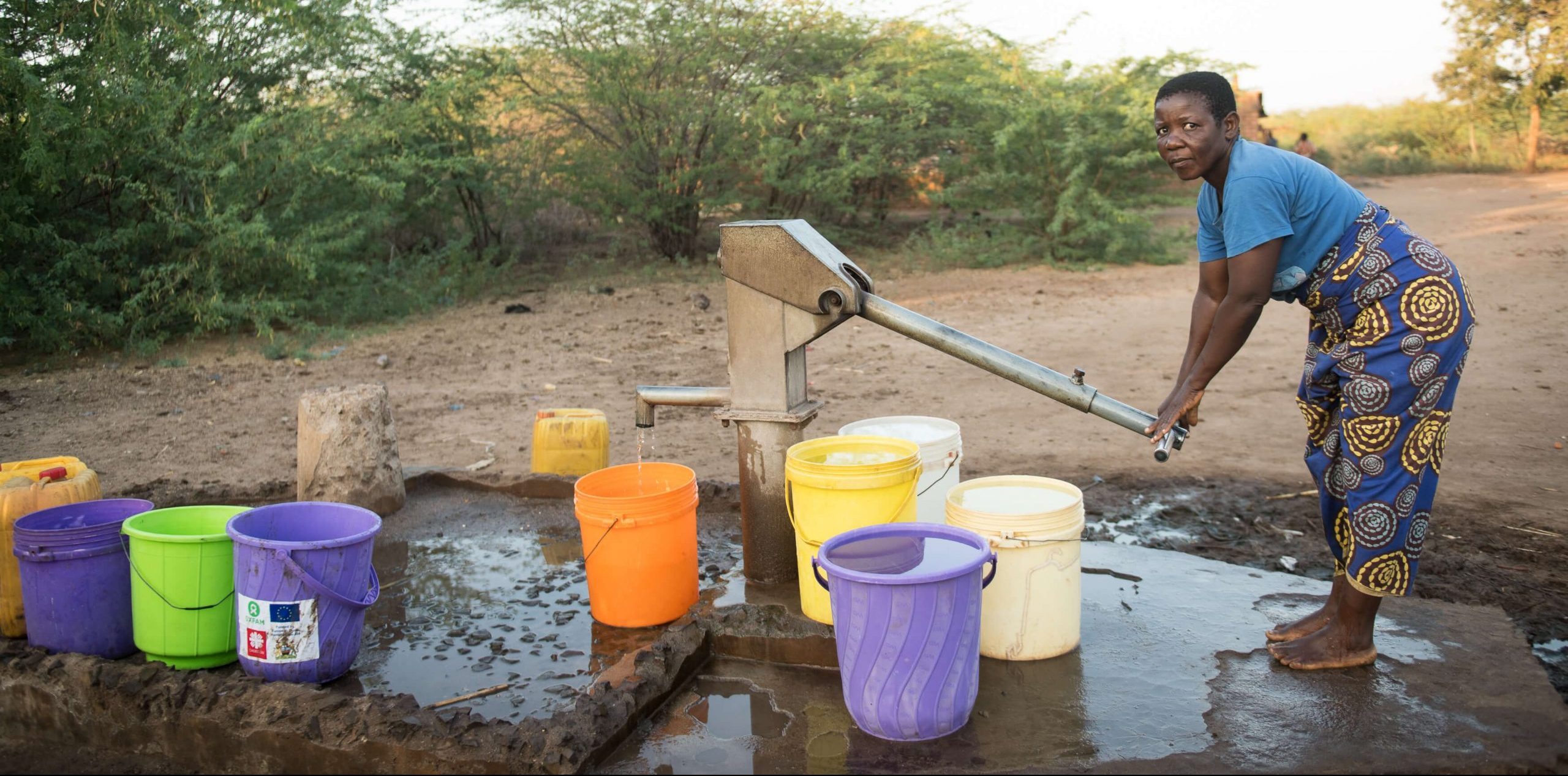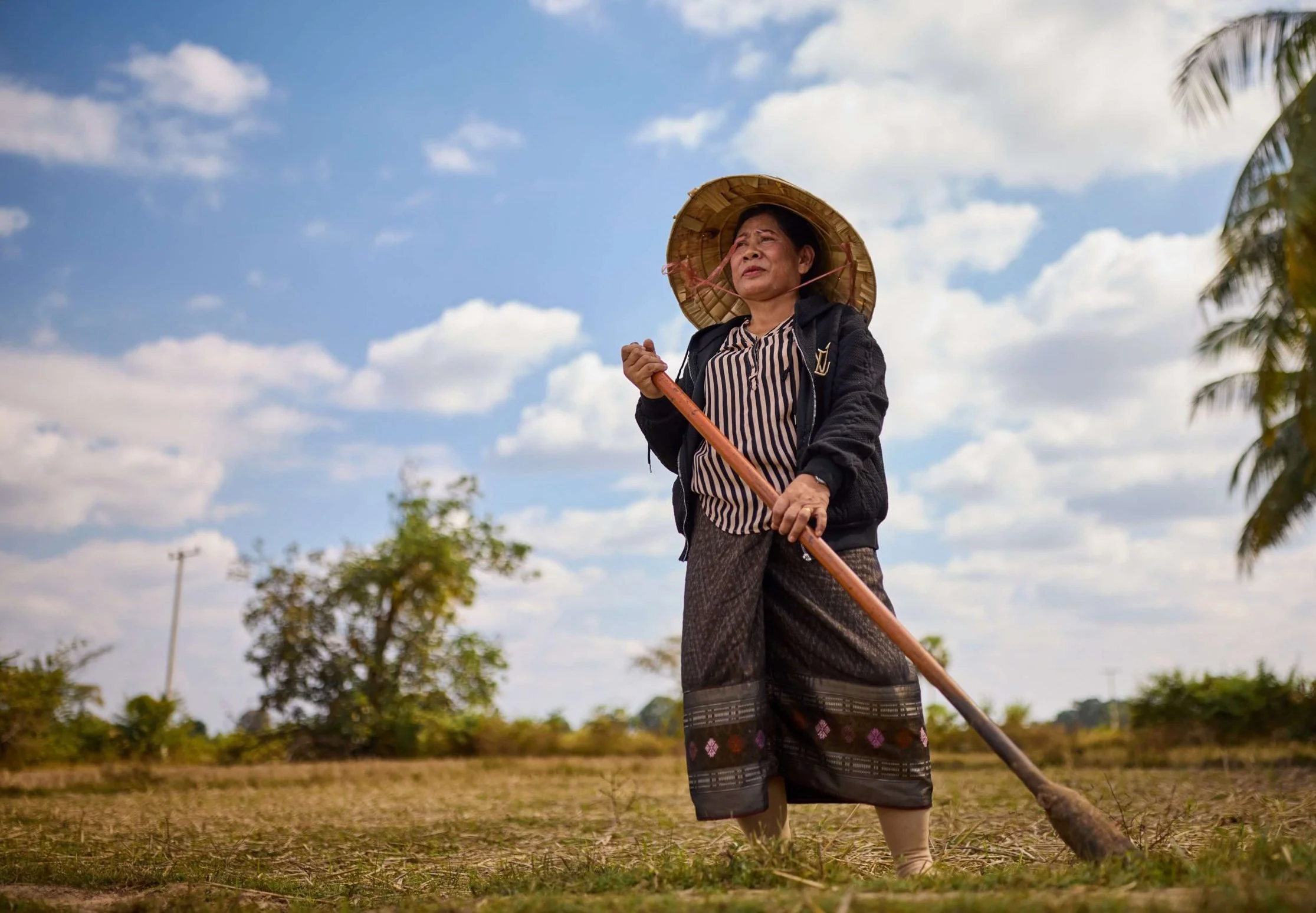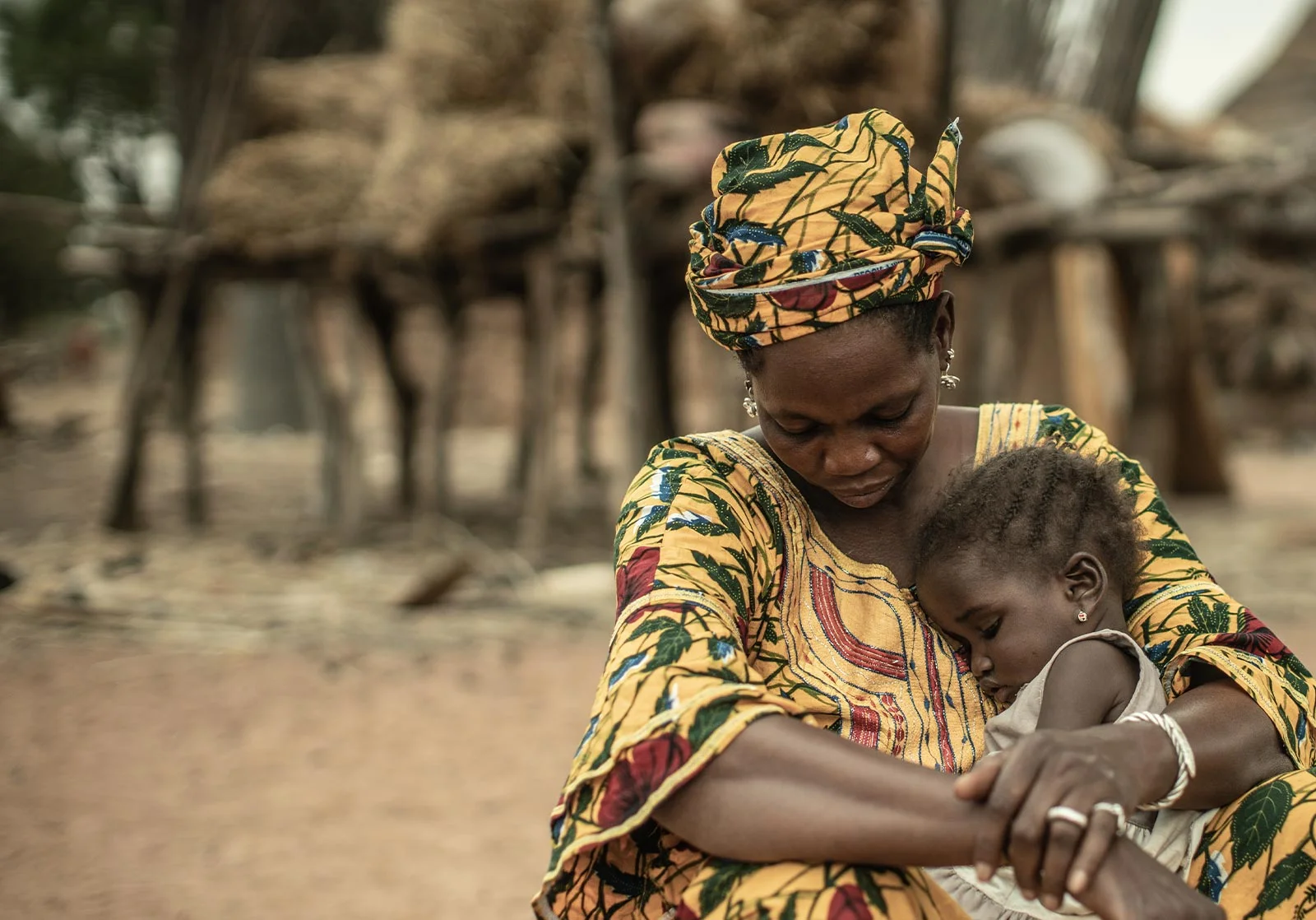DONATE
Together, we can help families who have lost everything in climate disasters.
Climate-fuelled disasters are no longer a ‘future problem’.
They’re happening right now, and families facing inequality are feeling the full force of it.
Climate change is impacting everyone, but not equally. As communities around the world are being devastated by droughts, floods and fires, families who are already facing inequality are being hit the hardest. Families like Joyce’s.
Last year three devastating floods struck Joyce’s village in Malawi. The first flooded her home. The second destroyed her small farm that she relied on to feed her family. And the third washed her and her two children’s home away.
We climbed trees to escape. We had nowhere to run to… We had nothing left.
– Joyce
Joyce was on the brink of poverty before disaster hit her village. Now, she has no income, no home and faces an even more uncertain future for herself and her family.
The climate crisis is making these disasters more frequent and destructive. They’re destroying even more homes and livelihoods, leaving families desperate for assistance. To survive, families on the frontline of this crisis urgently need your help.
“The people faced a disaster when they were sleeping, and their houses fell with them inside.” – Martin
Martin lives in a coastal village in Solomon Islands, where the community built a rock sea wall to protect their houses. But rising ocean levels have damaged the wall and destroyed many homes. When families go to sleep, they don’t know whether their homes will be washed away during the night.
“I used to have sheep, about 12 of them, but now there are only a few left.” – Sanfo
Sanfo lives in Burkina Faso, she is facing a different kind of climate disaster – severe drought. Rain is rare, there is no more food and her livestock is dying. Now, she only has three cows to earn money, send her children to school and pay for the essentials.
“My heart sunk upon seeing how unrecognisable our home and gardens had become, my family and I have lived in fear and anxiety since then.” – William
William is a husband and a father. One night while his family slept, he was woken up by heavy running water. He went outside only to see his livestock and food gardens had been destroyed by water coming towards his home.
Help families facing climate change
Will you help families like Martin’s, William’s, Joyce’s and Sanfo’s survive climate change and rebuild their lives?
Donate NowYour donation will help provide much needed support
Your donation will be used in support of Oxfam’s efforts around the world. This is one of the many ways we work with communities affected by climate change to rebuild their lives.
Together, we can help provide:
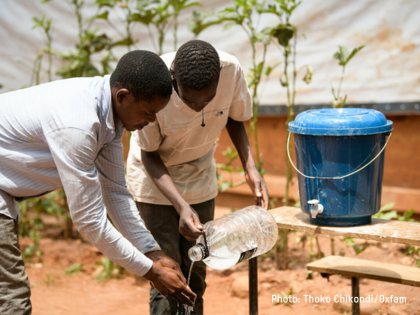
Sanitation facilities
Help build climate-resilient sanitation facilities to protect communities from waterborne diseases.
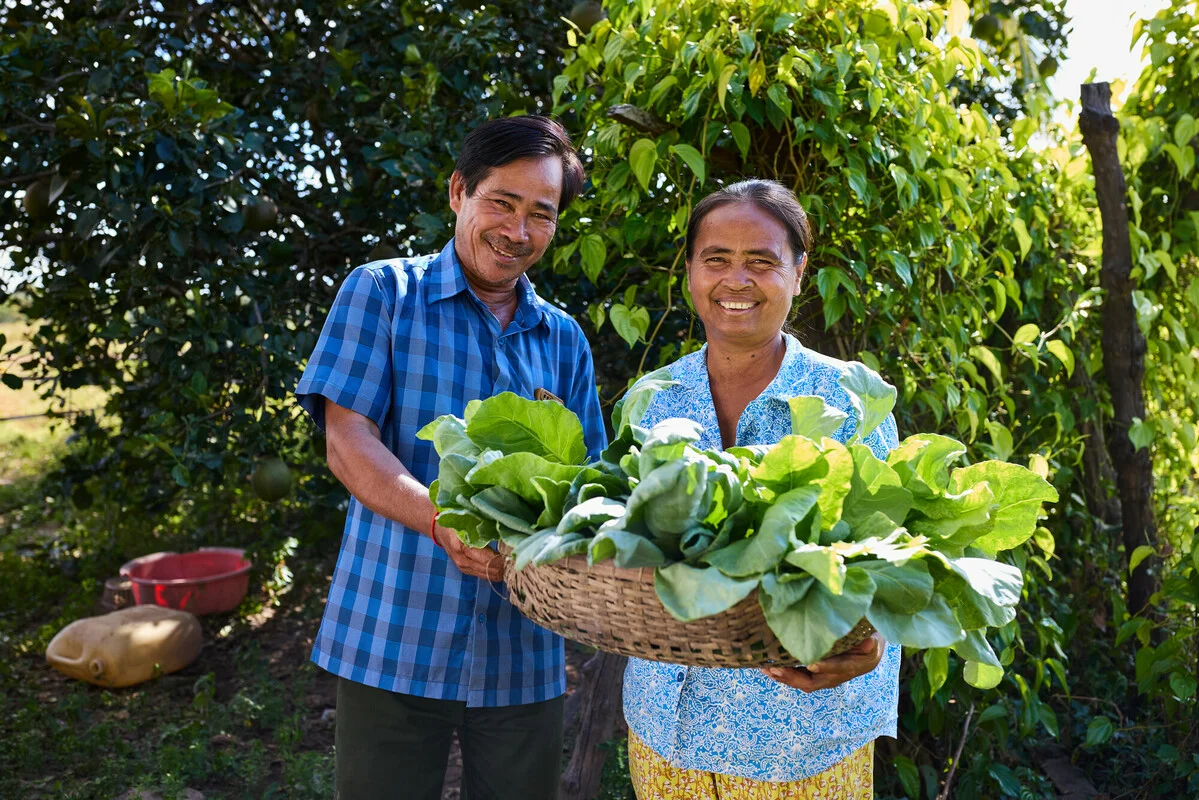
Climate-resilient farming
Help support climate-resilient farming so communities can withstand climate disasters such as droughts and floods.
Faqs
What are climate-induced disasters?
Climate-induced disasters are disasters such as floods, severe drought and fires that are becoming more frequent and more destructive because of climate change.
We experience them here in Australia, as seen in 2022 with significant flooding and in the 2019-20 bushfire season, but communities facing inequality and poverty have less resources to cope with these disasters. Without support people cannot rebuild after losing their homes, losing their family and losing their jobs.
Together, we can ensure everyone, no matter where they live, has the support they need to adapt and rebuild their lives following a climate-induced disaster.
Why is this so important now?
We’ve been facing climate change for a long time now, and at Oxfam Australia, we’ve seen the significant impact climate change has had on marginalised communities who are living in poverty.
Joyce in Malawi has seen climate-induced disasters become more destructive in her lifetime. Her village used to flood every 5 to 10 years, but now it floods once a year. In 2022 it flooded three times in a row, and she is now worried it’s going to get worse.
Despite people seeing the change before their eyes, funding to support this escalating issue is inadequate. Eight times more funding is needed now, compared to just 20 years ago, to combat increasing emergencies and help communities rebuild and become resilient to disasters.
Climate change is pushing more and more people into poverty. We must ensure those least responsible for the crisis don’t suffer the most.
How will my donation to Oxfam help the people impacted by climate-induced disasters?
Your donation will help the people impacted by climate-induced disasters in three key ways:
1. Clean water to save lives during a crisis: You could help upgrade solar water systems and create water collection points in villages, to provide safe drinking water into the future.
2. Sanitation to keep communities safe from outbreaks of diseases such as cholera: You could help establish flood-resistant sanitation facilities such as concrete pit latrines, so communities are prepared for the ongoing impacts of climate change and are protected from disease.
3. Farming supplies for floods and droughts: You could help install motorised pumps to help agricultural irrigation after floods, giving communities long-term resilience against climate change.
How much of my donation will help the people affected by climate-induced disasters?
Your donation will be used in support of Oxfam’s efforts around the world and distributed to where it is needed most and where it is most effective. Income from this appeal will help support our adaption and resilience building work in countries facing climate-induced disasters, in addition to our ongoing work supporting communities facing injustice and poverty.
For every $1 donated to Oxfam we spend 63 cents tackling poverty through our programs around the world, 27 cents raising the next $1 and 10 cents on administrative costs such as staffing, shipping fees and more – all of which are necessary for Oxfam Australia to manage donations and support communities effectively and efficiently.
